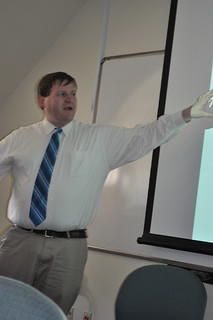
- 67 percent resulted in attempted boardings;
- 86 percent of these attempted boardings were successful;
- 19 percent of successful boardings became successful hijackings (control of the ship for one day or more); and
- 58 percent of successful boardings became successful robberies (theft of items and escape in the same day).
Behlendorf said that the odds of a successful attempted boarding increase in territorial waters, on anchored ships and when the pirates are armed but disciplined in their use of firearms. The data also suggested that the crew's actions, such as sounding alarms, using fire hoses, using more lights at night, and a maintaining a more vigilant posture are more strongly correlated with the failure of attempted boardings than the actions of the pirates or the structural circumstances of the incident.
"When you use [these tactics] are just as important as [which tactics] you use," Behlendorf said.
In his research for START, Behlendorf applies quantitative geospatial modeling to terrorist targeting strategies, maritime piracy and transnational criminal activity. He is also a doctoral candidate in criminology at the University of Maryland, where he focuses on neighborhood patterns of crime and victimization within developing countries. Previously, he was a researcher with the Ohio Department of Public Safety, where he coordinated a multi-agency evaluation of a commercial vehicle diversion program and assisted in the creation of risk management programs and assessments for the Ohio State Highway Patrol.
